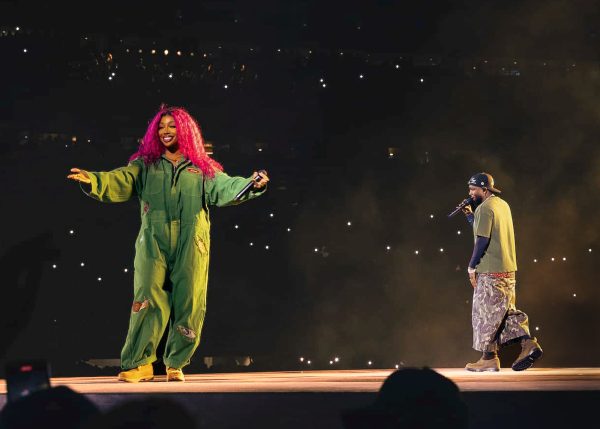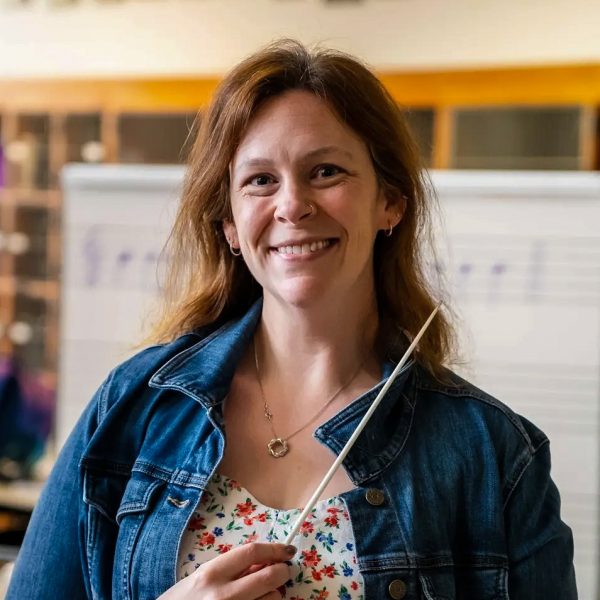Pipeline Tackles Racism and Classism
Source: @blstheatre on Instagram
Pipeline exposes the school-prison nexus.
Pipeline is a dramatic play that deals with race, class and the American education system in the 21st century. Written by Dominique Morisseau in 2017, the work is inspired by real events and shows how the school-to-prison pipeline permeates our communities.
Concord Theatricals, a significant theatrical company, describes the show’s premise, stating that “Nya, an inner-city public high school teacher, is committed to her students but desperate to give her only son Omari opportunities they’ll never have. When a controversial incident at his upstate private school threatens to get him expelled, Nya must confront his rage and her own choices as a parent.”
The school-to-prison pipeline, referenced in the plot of the play, affects thousands of Black and Brown students across the United States, with Black students three times more likely to be suspended or expelled than their White peers, according to the American Civil Liberties Union. The Appleseed Network, a nonprofit in Massachusetts focused on legal justice, states that Black girls in Massachusetts are almost four times as likely to be disciplined in school than White girls.
The content of the play eerily echoed events in our own community of Boston.
Mizuki Takano-Cunningham (III), who played Nya, mentioned that she was often “inspired by [Boston Latin School] teachers and other adults in her life in the characterization of her role.” The underfunded public schools mentioned in the show reminded Kyla Journey-Womack (III) of Urban Science Academy, which closed in 2019 due to “long-standing enrollment declines [and] uneven academic performance,” according to WGBH News.
Journey-Womack comments, “The school-to-prison pipeline really does exist. Yes, we may have done this play for entertainment, but we also did it to educate. Black and Brown boys are disproportionately more likely to be sent to prison from underfunded high schools.” This show forced the audience to open their eyes to issues that they rarely witness, as BLS is a predominantly White school.
“Whenever a class is having a discussion on racism,” Takano-Cunningham remarks, “the whole class usually turns to the [Black, Indigenous and People of Color] (BIPOC) students in the class for answers. It can be very uncomfortable to have a classroom of eyes on you especially when they are looking at you as if you are the representative for your entire race. Situations like [the ones in this show] aren’t really talked about, so I’m glad that the play brought it to light.”
Pipeline premiered at Boston Latin School in late January, starring a small cast of high school students willing to dive into the new realm of “Zoom Theatre.” The play was staged live, utilizing greenscreens and other special effects using a software called OBS Ninja. BLS Theatre was able to explore new — and sometimes challenging — programmings under the guidance of director Xander Haynes (I) and Mr. Joseph Gels, the head of the Theatre Department.
The cast of six, including Haynes, had to balance school and extracurriculars. Haynes describes that “[attending] Zoom all day everyday takes a toll on you, especially when the show is heavy emotionally.”
In spite of the packed schedule and dark content of the show, the show came together beautifully in the end; the cast even offered to stay after performances to give the audience a chance to share their opinions and ask questions.
BLS Theatre has had a nearly seamless transition to virtual theatre since the beginning of the COVID-19 pandemic. This is the third show they have put on, and with every show, they have explored new ways to incorporate technical theatre online. Takano-Cunningham says, “the rehearsal process was pretty similar to a non-[COVID-19] rehearsal, just with a few more bumps. Tech caused the most problems [and] bad WiFi and lag were the bane of our existence.”
Despite having never rehearsed together in person, the cast still was able to bond. Journey-Womack described the virtual rehearsal process as “club meetings […] because we had a good group of people and everyone’s hilarious.”
If you have enjoyed BLS Theatre thus far this year, the next show you can see is Urinetown, a satirical musical about capitalism, corporate mismanagement and bureaucracy, which will run from June 3 to June 6!







